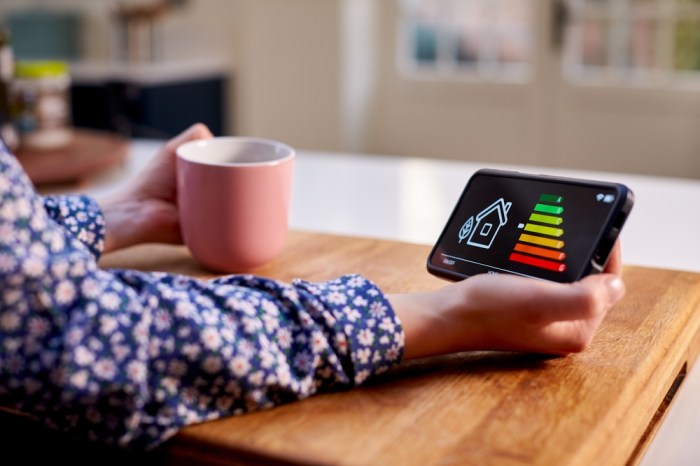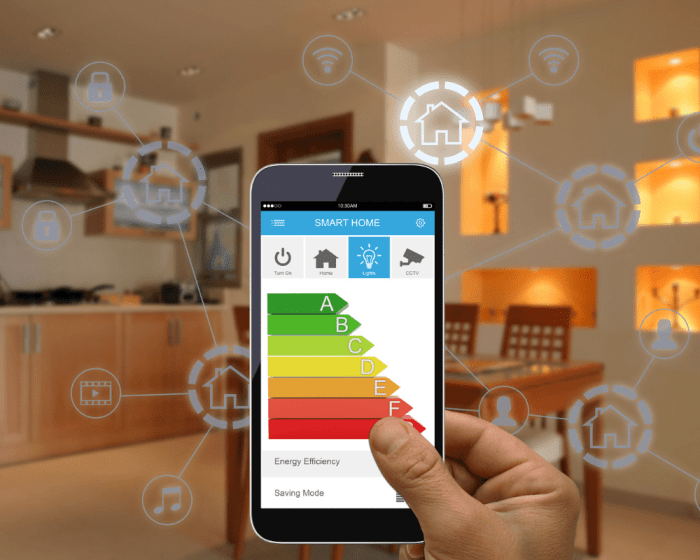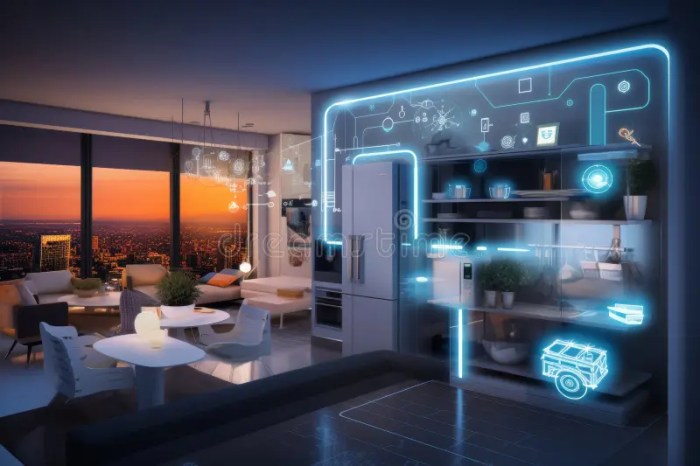The Benefits of Combining Home Automation with Energy Efficiency: Enhancing Functionality and Saving Costs
Exploring the synergy between home automation and energy efficiency can unveil a world of advantages that go beyond convenience and savings. By integrating smart technologies with sustainable practices, homeowners can transform their living spaces into efficient, eco-friendly havens.
Importance of Home Automation and Energy Efficiency
Home automation refers to the use of smart technology to control various devices and systems in your home, such as lighting, heating, ventilation, air conditioning, appliances, and security systems. On the other hand, energy efficiency involves using less energy to accomplish the same tasks, reducing energy waste and saving money in the process.
Benefits of Home Automation
- Convenience: Home automation allows you to control your home devices and systems remotely, making your life easier and more convenient.
- Increased security: Smart security systems can help protect your home from intruders and keep your family safe.
- Energy savings: By automating your home's systems, you can optimize energy usage and reduce waste.
- Enhanced comfort: Smart thermostats and lighting controls can adjust to your preferences, creating a more comfortable living environment.
Benefits of Energy Efficiency
- Cost savings: Using energy-efficient appliances and systems can significantly lower your utility bills over time.
- Environmental impact: Reduced energy consumption helps lower greenhouse gas emissions and minimize your carbon footprint.
- Long-term sustainability: Energy-efficient practices contribute to the long-term sustainability of our planet by conserving valuable resources.
- Improved home value: Energy-efficient homes are more attractive to buyers and can increase the resale value of your property.
Combining Home Automation with Energy Efficiency
By integrating home automation with energy-efficient practices, you can maximize the benefits of both. Smart technology can help you monitor and control your energy usage more effectively, leading to enhanced home functionality and significant cost savings in the long run.
Smart Home Devices for Energy Efficiency
Smart home devices have revolutionized the way we manage energy consumption in our homes. These innovative devices are designed to not only make our lives more convenient but also help us save energy and reduce utility costs.
1. Smart Thermostats
Smart thermostats like Nest and Ecobee use sensors and algorithms to learn your heating and cooling preferences. They can adjust the temperature based on your habits and preferences, ensuring that your HVAC system runs efficiently and minimizes energy waste.
2. Smart Lighting
Smart lighting systems, such as Philips Hue and Lutron Caseta, allow you to control your lights remotely and set schedules for when they should turn on and off. This helps in reducing energy consumption by ensuring that lights are not left on when not needed.
3. Smart Power Strips
Smart power strips like TP-Link Kasa and Belkin WeMo enable you to monitor and control the power usage of your electronic devices. They can detect when devices are in standby mode and automatically cut off power to prevent energy wastage.
4. Smart Appliances
Smart appliances, such as energy-efficient refrigerators, washers, dryers, and dishwashers, are equipped with advanced features that optimize energy usage. They can adjust settings based on load size and energy demand, helping you save on electricity costs.
Integration of Home Automation Systems
Integrating home automation systems is crucial for optimizing energy efficiency in a connected home. By combining different smart devices and systems, homeowners can effectively manage and reduce energy consumption.
Smart Thermostats and Lighting Systems
- Smart thermostats can work in conjunction with lighting systems to adjust the temperature and lighting levels based on occupancy and natural light availability.
- For example, when a room is unoccupied, the thermostat can lower the temperature and the lights can automatically turn off, saving energy.
- This integration ensures that energy is not wasted on heating, cooling, or lighting empty spaces.
Smart Appliances and Solar Panels
- Connecting smart appliances like refrigerators, dishwashers, and washing machines to solar panels allows homeowners to utilize clean energy for their daily tasks.
- Smart appliances can be programmed to run during peak solar production hours, maximizing the use of renewable energy and reducing reliance on the grid.
- This setup not only lowers electricity bills but also minimizes the carbon footprint of the household.
Whole Home Automation Systems
- A centralized home automation system can coordinate all smart devices, including thermostats, lighting, appliances, and security systems, to work together seamlessly.
- By setting up personalized schedules and automation routines, homeowners can ensure that energy is used efficiently throughout the day.
- These systems can also provide real-time energy consumption data and insights, allowing users to make informed decisions to further optimize energy efficiency.
Energy Consumption Monitoring and Analysis

Monitoring energy consumption in a smart home setup is essential for maintaining energy efficiency and reducing costs. By tracking how much energy is being used and when, homeowners can make informed decisions to optimize their energy usage. Analyzing energy consumption data provides valuable insights that can drive more efficient habits and help identify areas for improvement.
Tools and Methods for Analyzing Energy Usage Data
- Smart meters: These devices track energy usage in real-time, providing detailed information on when and where energy is being consumed.
- Energy monitoring apps: Smartphone apps can connect to smart home devices and provide users with data on their energy consumption patterns.
- Data analytics software: Advanced software can analyze energy data to identify trends, patterns, and potential areas for energy savings.
- Home energy audits: Professional audits can assess energy usage in a home and recommend changes to improve efficiency.
Environmental Impact and Sustainability

Home automation combined with energy efficiency has a significant positive impact on the environment. By reducing energy consumption through smart technologies, households can lower their carbon footprint and contribute to a more sustainable future.
Reduction of Carbon Footprint
- Smart thermostats can optimize heating and cooling systems, reducing energy waste and greenhouse gas emissions.
- Automated lighting controls can turn off lights when not in use, saving electricity and reducing reliance on fossil fuels.
- Smart appliances can operate more efficiently, decreasing overall energy consumption and lowering carbon emissions.
Promotion of Eco-Friendly Living
- By integrating renewable energy sources like solar panels with home automation systems, households can further reduce their environmental impact.
- Automated irrigation systems can optimize water usage in gardens, promoting sustainable landscaping practices.
- Monitoring energy usage in real-time allows homeowners to make informed decisions to minimize waste and promote eco-friendly habits.
Final Review
In conclusion, the fusion of home automation and energy efficiency not only elevates comfort and convenience but also contributes significantly to a greener, more sustainable future. Embracing these innovative solutions can lead to a more efficient lifestyle while reducing environmental impact.
Expert Answers
How can combining home automation with energy efficiency benefit homeowners?
By integrating smart devices that promote energy efficiency, homeowners can enjoy enhanced control over their home functions while reducing energy costs.
What are some popular smart home devices that aid in energy conservation?
Devices like smart thermostats, LED lighting systems, and energy monitoring tools are among the top choices for managing energy consumption.
How can homeowners analyze their energy consumption data for more efficient habits?
Utilizing tools like energy monitoring apps and smart meters can provide insights into usage patterns, helping homeowners adjust their habits for optimal efficiency.



